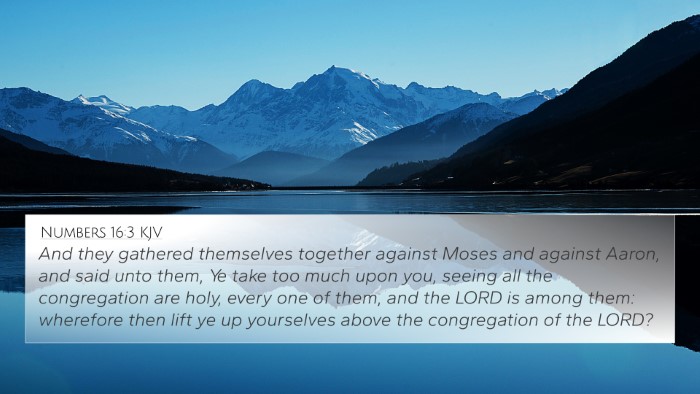Understanding Mark 11:28
Mark 11:28 states, "And say to him, 'By what authority do you do these things? And who gave you this authority to do these things?'" This verse takes place during a critical context where Jesus is questioned regarding His authority, signaling the tension between His divine mission and the established religious leaders of the time.
Verse Context and Immediate Meaning
Matthew Henry comments that this inquiry from the chief priests and scribes reflects their challenge against Jesus's growing influence and popularity among the people. They demand to know the legitimacy of His actions in the temple, revealing their concern over losing control.
Adam Clarke emphasizes the provocative nature of the question, likening it to a court trial where Jesus’s credentials are being scrutinized. This challenging of authority not only sets the stage for a deeper revelation of Jesus’s identity but also highlights the religious leaders' fear and jealousy.
Theological Implications
Albert Barnes underscores the theological implications of authority in this encounter. The leaders’ question leads to a significant dialogue about divine authority versus human authority, indicating a clash that runs through the Gospel narratives. Jesus' authority originates from divine appointment, contrary to the human traditions upheld by the religious elite.
Cross-References Related to Mark 11:28
- Matthew 21:23-27 - Jesus faces a similar question concerning His authority.
- Luke 20:1-8 - The parallel account that also addresses Jesus's authority.
- John 5:27 - Jesus speaks about the authority given to Him by the Father.
- Matthew 28:18 - Jesus declares that all authority in heaven and earth has been given to Him.
- Mark 1:22 - The people were astonished at His teaching because He taught as one having authority.
- Isaiah 61:1-3 - The prophetic foundation for Jesus’s mission and authority.
- Psalms 110:1 - The prophecy declaring the authority of the Messiah.
Connecting Themes and Insights
Examining Mark 11:28 in conjunction with its cross-references reveals strong connections between the New Testament and Old Testament. For instance, just as the prophets were often questioned, Jesus steps into that role, reminding human authorities of the divine origins of His mission.
Thematic Bible Verse Connections
- Authority and Recognition: Mark 11:28 is part of a broader theme where Jesus challenges the status quo and demonstrates His authority.
- Rejection of Prophets: Similar to how the prophets were rejected and questioned (e.g., Jeremiah 20:1-2).
- Divine Commission: The acknowledgment of authority from God, as seen in Exodus 3:11-12 where Moses is questioned.
Practical Applications
In a world where authority is often challenged, Mark 11:28 serves as a reminder of the legitimacy of divine authority and the importance of recognizing it in our lives. When exploring biblical texts, the use of a bible concordance can enhance understanding and reveal connections between Bible verses that might not be immediately evident.
The verse invites believers to contemplate their own understanding of authority—who they recognize as having the right to lead, teach, and guide in truth.
Conclusion
In conclusion, Mark 11:28 is a pivotal moment that reveals the tension between earthly authority and divine appointment. Through the study of this verse and its cross-references, believers can gain a deeper understanding of Jesus’s role and the authority He embodies, according to God's plan. Whether through a bible cross-reference guide or tools for bible cross-referencing, a richer comprehension of scripture and its interconnectedness can be attained.








